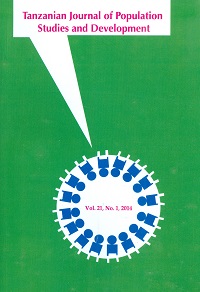How Some Witnesses Have Vied for Floor Control in Tanzanian Higher Courts
Abstract
This paper is on how some witnesses in Tanzanian courts wrestle the unequal apportionmentof trial discourse resources. In the Adversarial trial, counsel has the freedom to operate within
the initiation and feedback or follow up, which s/he uses to voice evidence at crossexamination.
A witness, on the other hand, is strictly required to operate within the response move.
Most witnesses find themselves vulnerable.
Viewing any engagement contrary to trial norms as an act of power struggle leading to juridical ideological
transformation, I chose two elements of the Faircloughian Text Oriented Discourse Analysis for analysis. The study examined interactional control, focusing on interruption to see how counsel and witness
grapple over turns. It also went for addressee disposition to see how witnesses fit themselves
into their responder role. Of the four witnesses in the four cases examined, two witnesses
engaged with trial discourse transformatively, interrupting and voicing their dissatisfaction
of the way the trial counsel treated them; while the other two engaged conventionally,
responding in counsel-preferred manner. Whereas this transformative engagement seems
like leading to juridical ideological transformation, the paper notes that without
reapportioning trial discourse resources in a courtroom €”which has to go with re-evaluating
the merits of the adversarial system today €”witnesses will continue being outsiders in a
justice system supposed to be their own.
Keywords: addressee disposition, counsel, cross-examination, ideological transformation,
interactional control, trial discourse resources
Published
2019-05-24
Issue
Section
Articles


